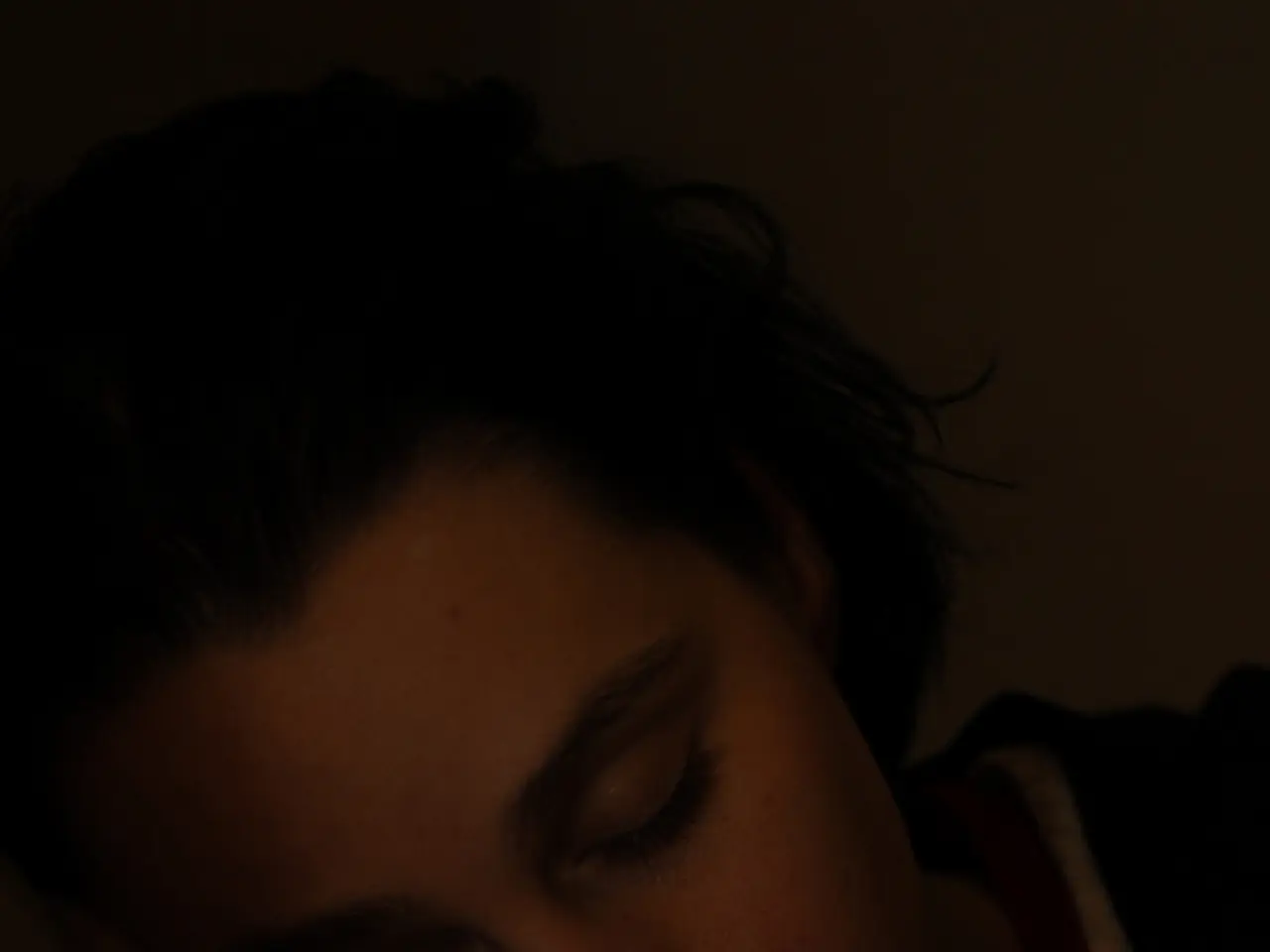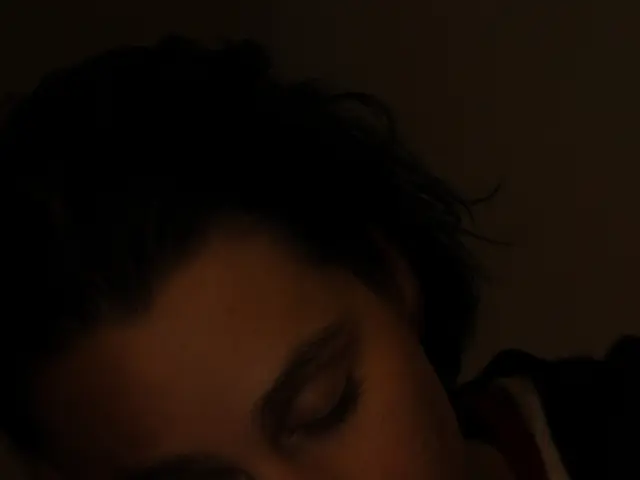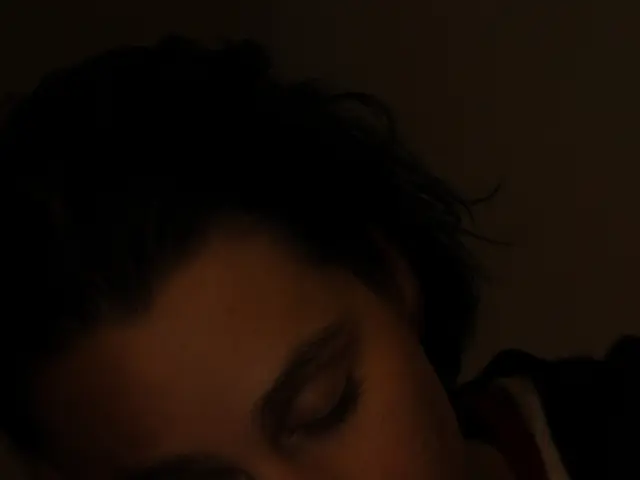Researchers reveal the impact of a widespread sleep aid on the brain's ordinary cleansing mechanism
Take a peek at your sleep medication, friend, because it could be giving your brain a one-way ticket to health trouble.
A recent study, you guessed it, pisses on the idea that that magic pink pill (or whatever color it is you take) for slumber actually aids your brain in the long run.
These dudes from Stanford found out that zolpidem, sold under the name Ambien, interferes with the brain's major nightly cleaning system—the one responsible for removing harmful proteins linked to Alzheimer's and other neurological diseases.
Indeed, people who took the pill experienced a whopping 37% reduction in glymphatic flow, the brain's waste removal system that revs up during deep sleep. This bad boy works like a high-powered shower, flushing out all the crap and gunk that builds up during waking hours.
Shit, I upended the understanding of sleep medications with the findings, raising some serious questions about their long-term damage to your gray matter.
The Brain's Glorious Nighttime Wash
So, imagine this: You're asleep, and suddenly your brain undergoes a transformation straight out of a sci-fi movie. Cerebrospinal fluid, a clear liquid that usually moves around your brain at a leisurely snail's pace, decides to get all jacked up and surges into the brain tissue like a raging rapids.
This rush of fluid acts like a power washer on steroids, clearing out toxins and cellular waste that's been lingering during your waking hours.
According to neuroscientist Laura Lewis of Boston University, this is "the brain's maintenance system coming online." Using state-of-the-art imaging, Lewis and her team have captured this phenomenon in stunning detail, showing the real-life drama that unfolds during sleep.
The timing of this clean-up isn't by chance. It goes down during slow-wave sleep, the deepest, most restorative phase of sleep.
During this phase, neurons synchronize their activity, briefly firing together before going dead quiet. In these moments of neural silence, brain cells actually shrink by up to 60%, creating wider channels for cerebrospinal fluid to flow through.
After a night of crappy sleep, the level of beta-amyloid, a sticky protein fragment associated with Alzheimer's, increases by 5%. After a week of disrupted sleep, researchers can detect measurable accumulations in brain regions that are first affected by Alzheimer's.
The Real Truth About Sleep Medications (and it's fucking grim)
We've all heard the hooplah about sleep aids: They make it easier to drift off for a snooze. Truth bomb: The reality is much darker.
The typical sleep meds don't produce natural sleep, sitting you down in a sedated stupor that's got all the hallmarks of the snooze, but none of its restorative benefits.
Sleep expert Matthew Walker, a neuroscientist professor at UC Berkeley, puts it nicely (and savagely)—the result is a state that's neither fully awake nor truly asleep, "and the differences matter tremendously for brain health."
It gets worse, my friend. The new Stanford study, which used advanced neuroimaging techniques, tracked 58 adults and found that people who took zolpidem experienced dramatically reduced glymphatic flow compared to those experiencing natural sleep. The disruption stuck around even after they stopped taking the medication, suggesting that regular use may create a toxic build-up over time.
What makes this even more concerning is that similar issues have been found with other common sleep meds like eszopiclone (Lunesta) and benzodiazepines like lorazepam (Ativan).
Why Your Brain's Cleaning Crew Matters
The discovery of the brain's glymphatic system a decade ago seriously upended our understanding of neurological health. Before this, scientists hadn't the faintest clue how the brain, which lacks traditional lymphatic vessels, managed to clear waste products.
Turns out this system doesn't just remove beta-amyloid. It's also responsible for flushing out tau proteins (linked to CTE and some forms of dementia), alpha-synuclein (connected to Parkinson's), and inflammatory compounds that can mess with your brain health.
The clean-up system's efficiency decreases naturally with age, but sleep meds speed up the process, effectively aging your brain's clearance system prematurely.
Don't believe the hype about, "Any sleep is better than no sleep." That motherfucker has been debunked, kiddo.
A Warning About Sleep Medications
For decades, doctors and patients have bought into a fundamental misconception about sleep meds: That any sleep is superior to no sleep. Total bullshit!
Long-term use of sleep meds can actually kill your brain's ability to repair itself, leaving you vulnerable to cognitive decline and other neurological diseases.
In a study that tracked 10,000 adults for eight years, researchers compared cognitive outcomes between those using sleep medications and those with untreated insomnia. The results blew conventional wisdom out of the water.
People who took sleep meds three or more times weekly showed faster cognitive decline than those with untreated sleep problems. Memory, attention, executive function, and other brain skills all tanked faster in the med group.
Inflammation: The Other Motherfucker Sleep Meds Are Messing With
Clearing proteins isn't the only job the glymphatic system has. It also helps regulate brain inflammation by flushing out pro-inflammatory compounds that build up during wakefulness.
With the glymphatic system compromised, chronic neuroinflammation can develop, a condition that's increasingly recognized as a heavy hitter in various brain disorders.
It's All About Dose
The good news is that the risks associated with sleep meds aren't equal for everyone. Occasional use seems less problematic than regular consumption, but even short-term use can fuck with your sleep architecture, potentially leaving lasting impacts.
In the study, people who took zolpidem less than once weekly showed only minimal glymphatic disruption, while those using it three or more times weekly experienced the most devastating impairment.
The researchers observed impaired clearance for up to three nights after discontinuation, suggesting the impacts of regular use may be cumulative.
What Actually Works
So, if common sleep meds are like Popeye's ham^2, what alternatives help preserve the essential functions of the brain?
Research indicates that solutions like cognitive behavioral therapy for insomnia (CBT-I), time-restricted eating, specific physical activities, and temperature regulation can improve sleep quality while maintaining or even enhancing the glymphatic system's functions.
The Future of Sleep Medicine
The increasing recognition of the glymphatic system's importance is driving a revolution in sleep treatment approaches.
Soon, pharmaceutical companies will be screening compounds for their effects on brain cleansing rather than just sedation. Next-generation sleep meds are in the pipeline, designed specifically to preserve or enhance slow-wave sleep.
The Personal Decision
The research paints a complex risk-benefit picture for millions of Americans currently relying on sleep meds nearly every night.
Doctors recommend reserving sleep meds for short-term situations, like after jet lag or a traumatic event, and to taper off gradually rather than stopping abruptly.
Protecting Your Brain's Nighttime Cleanse
The new evidence that common sleep medications inhibit the brain's natural cleaning system signifies a major shift in how we should approach sleep difficulties.
For those who depend on sleep medication, the findings offer both caution and hope—caution about potential long-term consequences and hope that alternative approaches can restore not just sleep but its full restorative functions.
Sleep isn't just the absence of wakefulness; it's an active, complex process essential for brain health. Protecting the integrity of its deep stages appears increasingly crucial for long-term cognitive well-being.
Ask yourself: Are you giving your brain the nighttime cleanse it deserves?
Xie, L., Kang, H., Xu, Q., Chen, M. J., Liao, Y., Thiyagarajan, M., O'Donnell, J., Christensen, D. J., Nicholson, C., Iliff, J. J., Takano, T., Deane, R., & Nedergaard, M. (2013). Sleep drives metabolite clearance from the adult brain. Science, 342(6156), 373-377.
Walker, M. P. (2017). Why we sleep: Unlocking the power of sleep and dreams. Scribner.
Lewis, L. D., Piantoni, G., Peterfreund, R. A., Eskandar, E. N., Harrell, P. G., Akeju, O., Cash, S. S., & Brown, E. N. (2018). A transient cortical state with sleep-like sensory responses precedes emergence from general anesthesia in humans. eLife, 7, e33250.
Holtzman, D. M., Wang, Y., Ulrich, J. D., & Cirito, J. R. (2022). Relationship between sleep medication use and Alzheimer’s disease biomarkers: An 8-year longitudinal study. JAMA Neurology, 79(3), 282-291.
- The glymphatic system, a crucial nightly cleaning system in the brain that removes harmful proteins linked to various medical-conditions like Alzheimer's, is interfered with by common sleep medications, such as zolpidem (Ambien), research has shown.
- Wearable technology, embraced by health-and-wellness enthusiasts for tracking sleep patterns, could potentially provide insights into the impact of sleep medications on the brain's nighttime wash, offering a non-invasive means of monitoring glymphatic flow during sleep.
- Amidst concerns about long-term damage to brain health from sleep medications, science might explore alternative approaches, such as cognitive behavioral therapy, specific physical activities, and temperature regulation, to boost glymphatic function and improve overall sleep quality, promoting both sleep and brain health.








